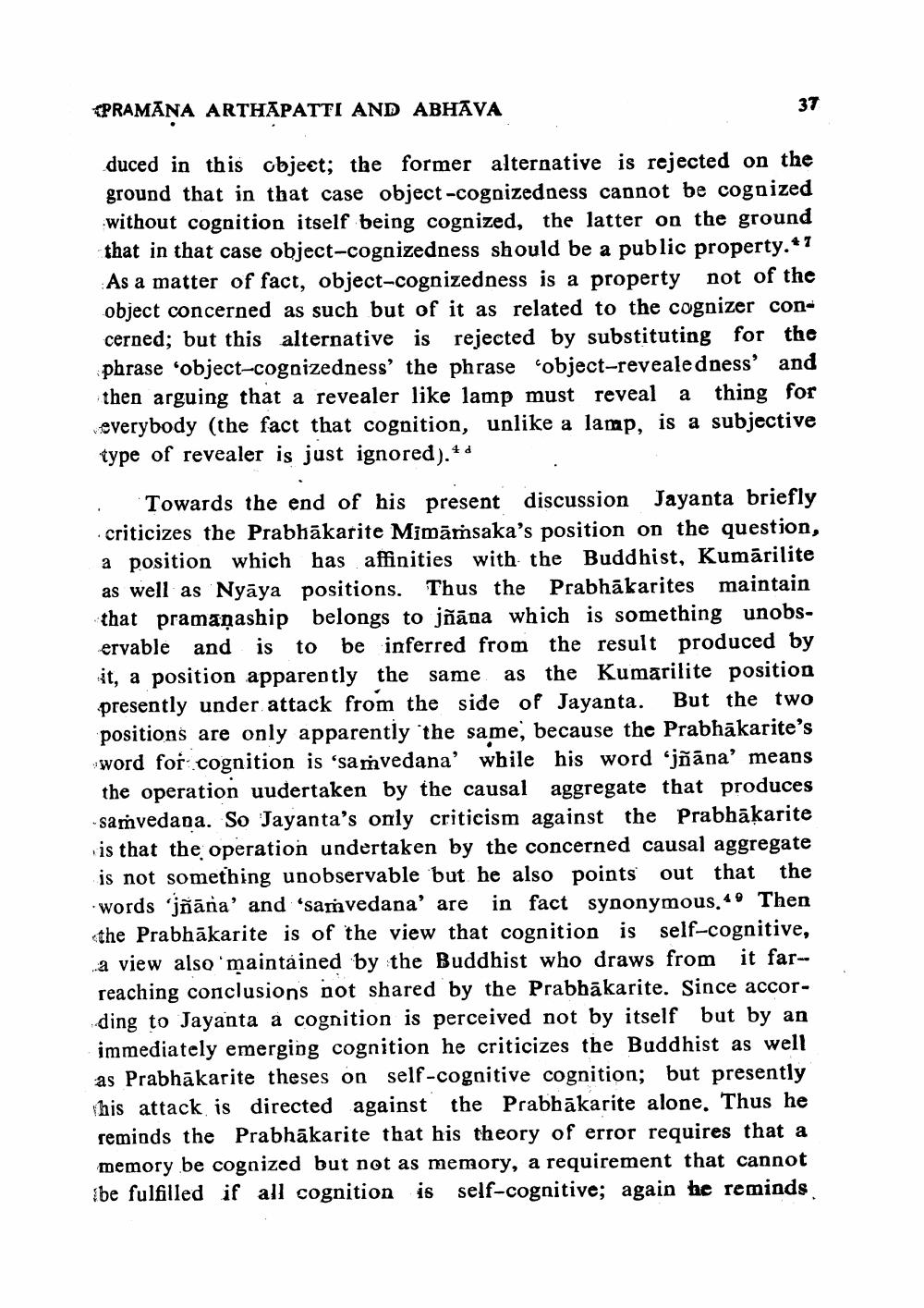________________
PRAMĀNA ARTHĀPATTI AND ABHAVA
37
duced in this cbject; the former alternative is rejected on the ground that in that case object-cognizedness cannot be cognized without cognition itself being cognized, the latter on the ground that in that case object-cognizedness should be a public property.+7 As a matter of fact, object-cognizedness is a property not of the object concerned as such but of it as related to the cognizer concerned; but this alternative is rejected by substituting for the phrase "object-cognizedness' the phrase "object-revealedness' and then arguing that a revealer like lamp must reveal a thing for everybody (the fact that cognition, unlike a lanap, is a subjective type of revealer is just ignored). 4 d
: Towards the end of his present discussion Jayanta briefly criticizes the Prabhākarite Mimāmsaka's position on the question a position which has affinities with the Buddhist, Kumārilite as well as Nyāya positions. Thus the Prabhākarites maintain that pramaņaship belongs to jñāna which is something unobservable and is to be inferred from the result produced by it, a position apparently the same as the Kumarilite position presently under attack from the side of Jayanta. But the two positions are only apparently the same, because the Prabhākarite's word for cognition is ‘samvedana' while his word 'jñāna' means
the operation uudertaken by the causal aggregate that produces - samvedana. So Jayanta's only criticism against the Prabhakarite is that the operation undertaken by the concerned causal aggregate is not something unobservable but he also points out that the words 'jñāna' and 'samvedana' are in fact synonymous.49 Then <the Prabhākarite is of the view that cognition is self-cognitive, „a view also 'maintained by the Buddhist who draws from it farreaching conclusions not shared by the Prabhākarite. Since according to Jayanta à cognition is perceived not by itself but by an immediately emerging cognition he criticizes the Buddhist as well as Prabhākarite theses on self-cognitive cognition; but presently this attack is directed against the Prabhākarite alone. Thus he reminds the Prabhākarite that his theory of error requires that a memory be cognized but not as memory, a requirement that cannot ibe fulfilled if all cognition is self-cognitive; again he reminds




